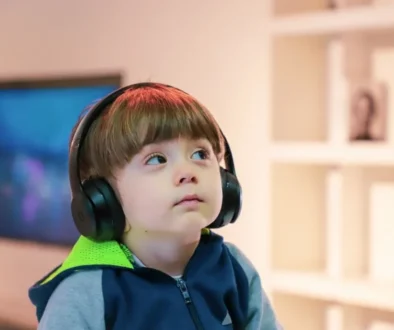8 Questions to Ask Your Doctor About Telemedicine for Autism
Are you the parent of a child with suspected symptoms of Autism Spectrum Disorder? Are you looking to get them the health they need as quickly as possible?
Diagnosis for autism is critical to your child getting the resources they need for optimal development. Yet in today’s climate, many parents are hesitant to visit a doctor’s office because of additional health hazards that could be present.
One of the main benefits of telemedicine is that you get access to experts without exposure to germs.
Here’s what you need to be asking about telemedicine for autism.
1. Is It Allowed?
In most states, telemedicine is permitted as long as your provider is licensed in the state in which you live. You may, however, need to establish a relationship in person first before telemedicine is allowed to begin. If you’ve never met with the doctor before, you may be required to be in a clinical site for an initial visit.
Make sure your doctor is comfortable using telemedicine for an initial autism diagnosis. They may want to see your child in person first and allow remote visits to continue later on.
For some families, however, safety from germs is a top priority. Talk to your doctor or a few different specialists first to find out about the kinds of options available in your area.
2. How Much Will I Pay?
Find out from your doctor how much telemedicine consultations are. In general, they’re less expensive than in-person visits.
Many health insurance companies will cover telemedicine visits. Right now, twenty-six states have laws requiring insurance companies to reimburse healthcare providers for telemedicine services. Ten more are considering doing the same.
You should, however, check with your insurance company first before deciding to go virtual.
3. What Signs Should I Be Looking For?
At a young age, children with autism may show no babbling or back-and-forth gestures like smiling or eye contact. They also may not use any words or phrases by the time they’re two years old.
Delayed language development, a preference for solitude, or intense reactions to sights or sounds are also signs to look out for as children grow.
If you suspect your child has a case of undiagnosed autism, let your doctor know what you’re seeing at home so you can get the help you need.
4. How is Autism Diagnosed Through Telehealth?
Autism is easier to diagnose remotely than some other conditions because it doesn’t require a physical test such as a blood test.
Rather, your doctor will look at a record of your child’s developmental history and behavior. Children with ASD may have language difficulties or problems with developing relationships. They may get upset by minor changes in their routine or seem disinterested in others.
Your doctor will continue to monitor your child’s behavior in terms of their milestones. These occur in playing, speaking, and behaving.
Your doctor will also complete a developmental screening and evaluation that will help them make the final diagnosis.
5. How Will Autism Get Treated?
If your child does get diagnosed with autism, you’ll want to know how you can begin helping them develop optimally.
Routine is critical when it comes to choosing the right treatment for your child. Many parents choose physical therapy, play therapy, or behavioral therapy to help their child develop interpersonal skills. Yet whatever you choose, it’s important that appointments be consistent so that gradual improvements can continue to take place.
Through therapy, children can learn new skills that they can generalize to new situations. Often, rewards-based systems work well with autistic children.
Some therapies involve the whole family. Remote clinical services for autism are also available.
6. Where Can I Have Telemedicine Sessions?
When speaking with your doctor, you may discover that you need to carve out a quiet time and place regularly in order for sessions to continue.
If you’re a busy parent with more than one child, you’ll need to consider how telemedicine meetings will work while you’re home. In some cases, in-person visits may be more productive.
7. Why Should I Choose Telemedicine?
Telemedicine isn’t right for everyone. Ask your doctors what they have seen that makes it work well for other parents.
Some people like that telemedicine requires no sitting in waiting rooms. They also don’t need to work out the child or elder care issues before they visit.
Still, other people are less comfortable meeting through a screen. You’ll need to speak to your doctor about your individual needs and concerns.
8. What Resources Are Available?
Telemedicine visits tend to be shorter. It’s important, therefore, to ask your doctor for websites or books where you can get additional information on autism diagnosis and treatment. If you’re a working parent, podcasts are a great way to get information while you’re commuting.
You’ll want to make sure all of the recommended places are medically sound, so your doctor is a good place to start. You can also look online for quality support groups where you can swap stories and ideas with parents in the same situation as yours. You’d be surprised at how quickly you can learn from one another.
Telemedicine for Autism
Telemedicine for autism is about more than just convenience. It can be a great way to get the resources you need to help your child. With the right doctor and the right therapy, your youngster will be making great strides in no time.
Don’t stop educating yourself about autism now. For more excellent resources for your child, contact us today.



